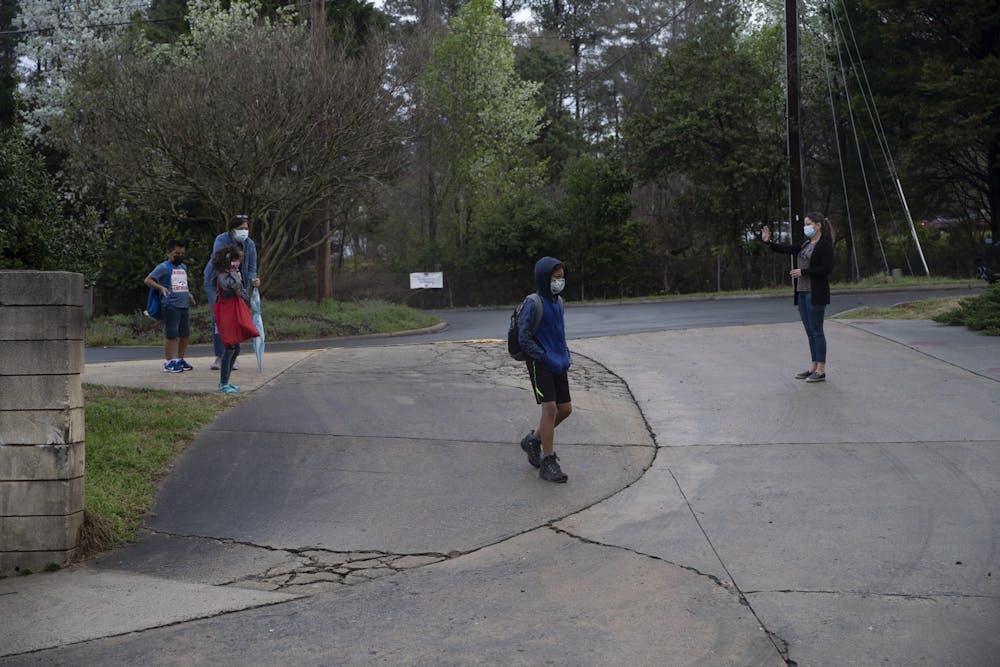A community-led coalition is demanding legislators fulfill their promise to ensure equitable education for all students in North Carolina, based on a court-ordered action plan from 2019.
Communities for the Education of Every Child NC is comprised of multiple organizations that specialize in various education and equity-related issues across the state.
Sarah Montgomery is the senior policy advocate with the Education and Law Project of the N.C. Justice Center, which is one of Every Child NC’s five coordinating committee members. Montgomery said the coalition aims to unite organizations that work to improve educational equity.
“We set out not to create a whole new body of work,” Montgomery said. “But to really make sure that we’re positioning advocates to strengthen the work they’re already doing in their communities.”
Every Child NC began organizing in 2019 after the release of “Sound Basic Education for All: An Action Plan for North Carolina,” a court-ordered analysis by an outside consulting group, WestEd.
The WestEd report identified eight critical needs that must be met for the state to fulfill its constitutional obligation. It was ordered based on North Carolina’s failure to comply with constitutional standards to provide all students with a “sound basic education” — a precedent determined in the 1994 N.C. Supreme Court Case Leandro v. State of North Carolina, where five school districts sued the N.C. Education System for inadequate funding.
The court ruled in 1997 — and again in 2004 — that North Carolina Schools are required to provide students with an equitable education.
But in the years following the Leandro decision, the state continued to rank one as of the lowest in the country in terms of school funding and equity. In fact, after 2009, funding for state schools decreased. North Carolina would have to increase its spending by $3.6 billion in order to reach the average spending level in the country.
Low funding disproportionately affects students from high-risk backgrounds: students with disabilities, students of color, rural and low-income students, English learners and early childhood students. Every Child NC identifies these vulnerable populations as a main focus of their work.



